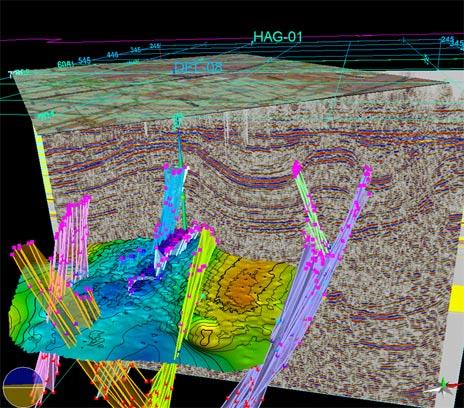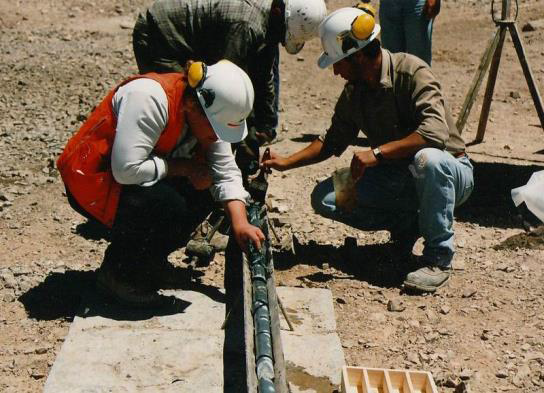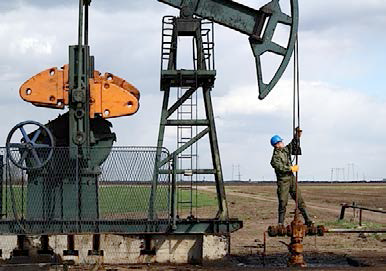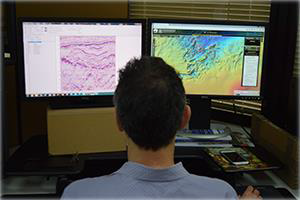COURSE OVERVIEW
DE0521 : Advances in Siesmic Interpretation

OVERVIEW
| COURSE TITLE | : | DE0521 : Advances in Siesmic Interpretation |
| COURSE DATE | : | Aug 19 - Aug 23 2024 |
| DURATION | : | 5 Days |
| INSTRUCTOR | : | Mr. Stan Constantino |
| VENUE | : | Abu Dhabi, UAE |
| COURSE FEE | : | $ 8000 |
| Request For Course Outline | ||
OTHER SCHEDULED DATES
| Date | : | Jul 07 - Jul 11 (5 Days) | Location | : | Dubai, UAE | Classroom Fee (US$) | : | $ 8000 | Course Info |
| Date | : | Sep 08 - Sep 12 (5 Days) | Location | : | Dubai, UAE | Classroom Fee (US$) | : | $ 8000 | Course Info |
| Date | : | Nov 18 - Nov 22 (5 Days) | Location | : | Abu Dhabi, UAE | Classroom Fee (US$) | : | $ 8000 | Course Info |
Course Description
Creation of shareholder value should be at the heart every business decision. This course is geared towards explorationists who are involved in screening seismic data for possible leads that they develop into prospects. This is a hands-on course where the instructor spends as little time on lectures as possible and the bulk of the time is spent interpreting seismic lines. These lines have been collected from oil producing basins worldwide and provide textbook examples of structural and stratigraphic geometries.
The course is evenly divided between the seismic expression of structural styles and seismic stratigraphy. After spending minimal time on acquisition and background theory participants will be made acutely aware of impedance and resolution and identification of processing errors and how important it is to understand these before interpretation. The participants will be introduced to the structural complexity associated with fold and thrust terrains, extensional systems and various types of wrench faulting and salt/mud related deformation.
The seismic stratigraphy portion of the course not only covers the practice of sequence stratigraphy using seismic data (AAPG Memoir 26), but also spends quite a bit of time on seismic facies analysis in cross-sectional view. Through lots of exercises by the end of the course everyone should be proficient at sequence analysis on seismic lines and be able to interpret depositional environments and net:gross using seismic facies analysis. The course will also introduce participants to the world of seismic geomorphology, attribute analysis and direct hydrocarbon indicators with an emphasis on unconventional resource plays such as fractured shale gas reservoirs and tight-gas sandstones.
Participants are strongly urged to bring paper copies of their own seismic data to work on. These data will not be shared with anyone and will only be reviewed by the instructor.
link to course overview PDF
The course is evenly divided between the seismic expression of structural styles and seismic stratigraphy. After spending minimal time on acquisition and background theory participants will be made acutely aware of impedance and resolution and identification of processing errors and how important it is to understand these before interpretation. The participants will be introduced to the structural complexity associated with fold and thrust terrains, extensional systems and various types of wrench faulting and salt/mud related deformation.
The seismic stratigraphy portion of the course not only covers the practice of sequence stratigraphy using seismic data (AAPG Memoir 26), but also spends quite a bit of time on seismic facies analysis in cross-sectional view. Through lots of exercises by the end of the course everyone should be proficient at sequence analysis on seismic lines and be able to interpret depositional environments and net:gross using seismic facies analysis. The course will also introduce participants to the world of seismic geomorphology, attribute analysis and direct hydrocarbon indicators with an emphasis on unconventional resource plays such as fractured shale gas reservoirs and tight-gas sandstones.
Participants are strongly urged to bring paper copies of their own seismic data to work on. These data will not be shared with anyone and will only be reviewed by the instructor.
TRAINING METHODOLOGY
This interactive training course includes the following training methodologies as a percentage of the total tuition hours
LecturesWorkshops & Work Presentations
Case Studies & Practical Exercises
Videos, Software & Simulators
In an unlikely event, the course instructor may modify the above training methodology before or during the course for technical reasons.
VIRTUAL TRAINING (IF APPLICABLE)
If this course is delivered online as a Virtual Training, the following limitations will be applicable
| Certificates | : | Only soft copy certificates will be issued to participants through Haward’s Portal. This includes Wallet Card Certificates if applicable |
| Training Materials | : | Only soft copy Training Materials (PDF format) will be issued to participant through the Virtual Training Platform |
| Training Methodology | : | 80% of the program will be theory and 20% will be practical sessions, exercises, case studies, simulators or videos |
| Training Program | : | The training will be for 4 hours per day starting at 09:30 and ending at 13:30 |
| H-STK Smart Training Kit | : | Not Applicable |
| Hands-on Practical Workshops | : | Not Applicable |
| Site Visit | : | Not Applicable |
| Simulators | : | Only software simulators will be used in the virtual courses. Hardware simulators are not applicable and will not be used in Virtual Training |
RELATED COURSES

DE0329 : Exploration Geology
- Date : Nov 24 -Nov 28 / 3 Days
- Location : Doha, Qatar
- Course Details Register

DE0996 : Well Testing & Production Optimization Operations
- Date : Nov 11 -Nov 14 / 3 Days
- Location : Al Khobar, KSA
- Course Details Register

DE0053 : Petrel Geological Process Modelling
- Date : Nov 10 -Nov 14 / 3 Days
- Location : Dubai, UAE
- Course Details Register

DE0638 : Advanced Geology
- Date : Nov 18 -Nov 21 / 3 Days
- Location : Dubai, UAE
- Course Details Register
